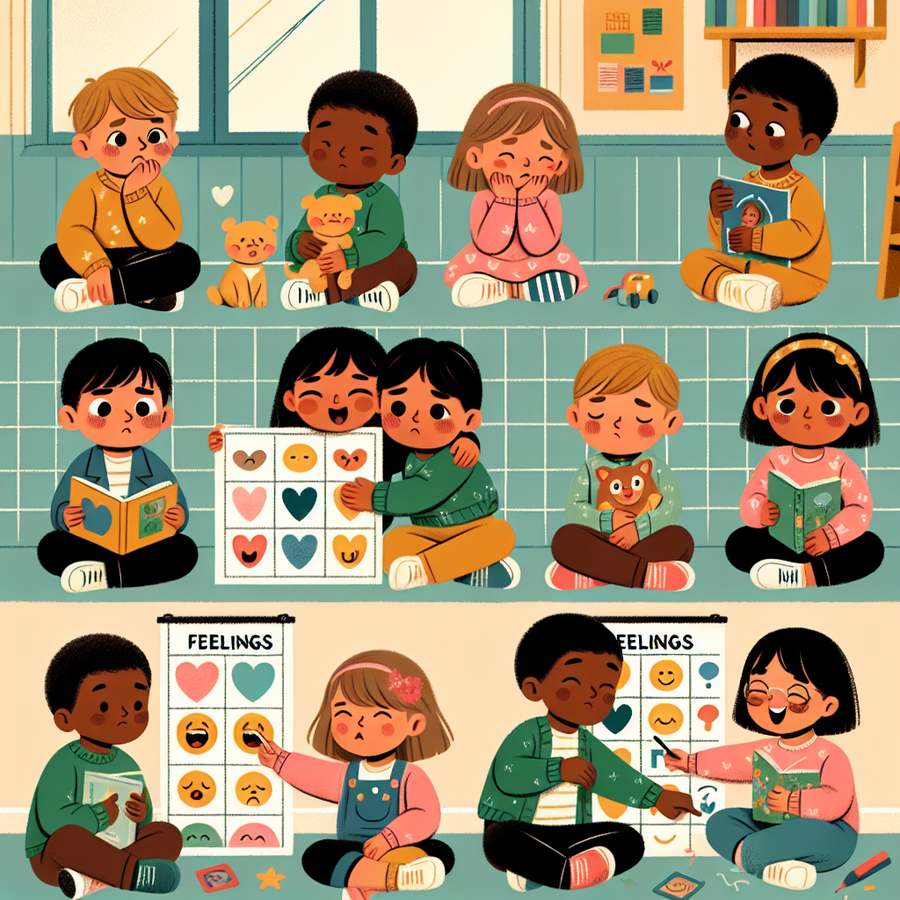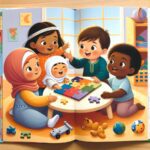Understanding how to nurture emotional intelligence in toddlers is a pivotal aspect of their development, equipping them with the ability to comprehend, express, and manage emotions effectively. This foundational skill set paves the way for successful social interactions and emotional well-being.
The Importance of Emotional Intelligence in Early Childhood
Emotional intelligence (EI) in early childhood is a precursor to a multitude of developmental milestones. It involves recognizing one’s emotions and those of others, fostering empathy, and navigating social complexities. Studies have indicated that children with higher EI tend to have better social skills, are more empathetic, and have enhanced problem-solving abilities. The nurturing of emotional intelligence in toddlers is, therefore, not just about understanding emotions but also about building a foundation for a harmonious and balanced life.
It’s crucial for parents and caregivers to foster an environment where emotions are openly discussed and valued. This approach not only validates the child’s feelings but also teaches them that emotions are a natural and important part of the human experience. By doing so, we lay the groundwork for emotionally intelligent future adults who are capable of healthy relationships and emotional resilience.
Strategies to Nurture Emotional Intelligence in Toddlers
One effective method to enhance EI is through empathy and social understanding activities. These can include role-playing games, reading books that explore emotions, and encouraging open discussions about feelings. Such activities not only help toddlers recognize and label their emotions but also teach them to empathize with others, an essential component of emotional intelligence.
Another crucial strategy is to model emotional intelligence ourselves. Children learn a great deal from observing the adults in their lives. When parents express their emotions in healthy ways, use problem-solving language, and show empathy towards others, they are providing a live example of how to navigate emotions effectively.
Activities to Boost Emotional Intelligence in Toddlers
Practical activities play a significant role in teaching toddlers about emotions. Simple games like ’emotion charades’, where family members act out different feelings for others to guess, can be both educational and fun. Additionally, teaching toddlers about emotions through appropriate expressions is vital. This can be done by using emotional flashcards or storybooks that focus on feelings, helping children to identify and understand various emotions in themselves and others.
Utilizing technology, carefully selected apps and online resources can offer interactive ways to explore emotions. For instance, Sesame Street has various tools and games designed to help children understand and express their feelings, which can be a valuable addition to more traditional methods.
In conclusion, nurturing emotional intelligence in toddlers is a multi-faceted process that requires consistent and intentional efforts. It’s about providing them with the tools and experiences necessary to understand and express their emotions positively. By embedding these practices into their early learning journey, we can support our children in developing into emotionally intelligent, compassionate, and socially adept individuals.
For more insights on supporting your toddler’s emotional and developmental milestones, explore our articles on building a reading routine for language and emotional development, supporting emotional development in the first year, and strategies for dealing with separation anxiety in babies.













